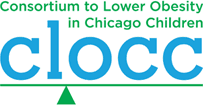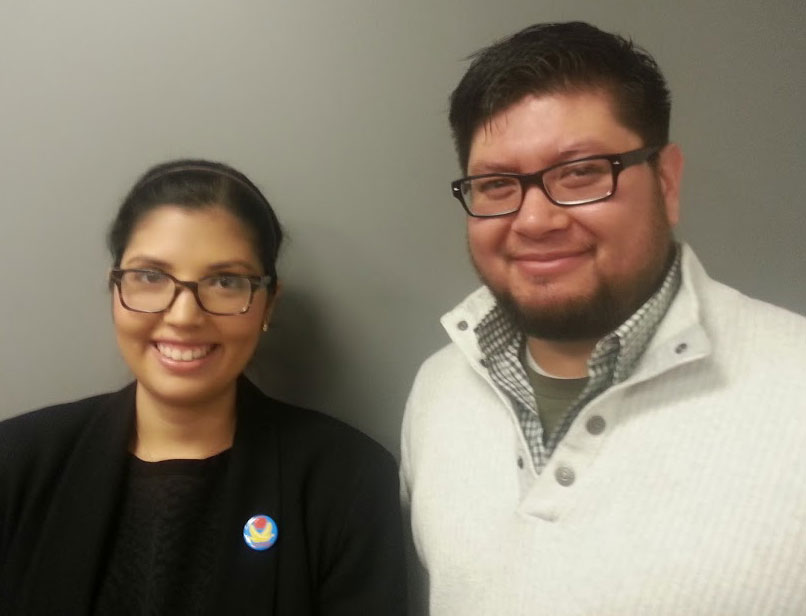By Jaime Arteaga, CLOCC Community Programs Coordinator, and Daney Ramirez, CLOCC Food Environment Coordinator
On February 7, 2014. DePaul University hosted the Health Disparities and Social Justice Conference. With a special focus on Latino health, the conference offered a valuable space for dialogue among a range of health and community experts who share DePaul’s mission to address social injustices and community health practices in marginalized groups. Presenters provided a training opportunity to increase public health skills in identifying and addressing a wide variety of health disparities in diverse communities. We are excited to participate and represent CLOCC at this event.
I (Jaime) was a panelist for the ¡Vive Tu Vida! A Model for Creating Healthy Social Experiences and Systems in Low Socio-Economic Status Hispanic Communities workshop where I highlighted the importance and need for walkable communities to promote active transportation by residents. To support this, CLOCC has a Neighborhood Walkability Assessment Tool that offers straightforward solutions that help lay the foundation for living an active, safe and healthy lifestyle. Participants also learned about Active Transportation’s Better Blocks work which produces community walking ambassadors and promote walking groups; The American Heart Association’s Walking Paths program which uses a fun online tool and phone app to design free and safe routes in communities that promotes walking, brings neighbors together, and provides valuable history lessons; and LISC’s Play Streets initiative that activates community space and spurs physical activity in communities that either lack green space or safe space for residents to enjoy. At the end of the session, participants were able to define and apply steps in the assessment process, test an online tool to create customized paths in their communities, and learn how to become walking advocates in their neighborhoods.
I (Daney), along with CLOCC School and Community Initiatives Manager Anna Barnes, presented findings from our Healthy Mobile Vending project. As a part of Healthy CPS, our Healthy Mobile Vending Project works to provide education and support to schools and mobile food vendors at twenty-five K-8 elementary schools located on the Southwest side of Chicago. Currently, a significant number of CPS students, primarily in predominately Latino communities, have access to a large variety of foods and beverages sold by mobile food vendors before and after school. As such, this project primarily focuses on building the capacity of mobile food vendors to offer and sell healthy food items, by empowering them to understand the importance of topics such as healthy eating, nutrition labels, and recipes modifications. The goal of the project is to increase the availability of healthy options available from mobile food vendors for these students. CLOCC works to achieve this goal through a number of intervention strategies including: offering training and technical assistance to vendors, engaging parents and students in nutrition workshops, launching a school based social marketing campaign that promotes healthy snacking, distributing educational and promotional materials and building community-wide support. Those strategies, as well as lessons learned from the project were discussed.
This was a great opportunity to not only share CLOCC’s walkability and mobile vending work, but also to learn about other important initiatives going on in Chicago that support Latino health (or salud in Spanish). Want to know more about CLOCC’s work? Contact Jaime at jarteaga@luriechildrens.org or Daney at deramirez@luriechildrens.org.


